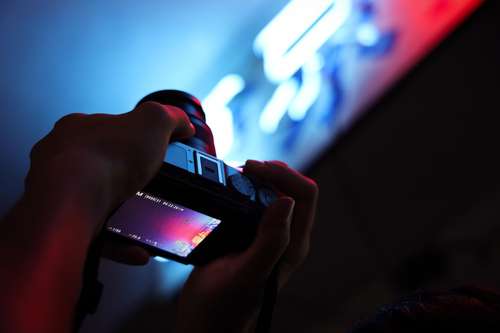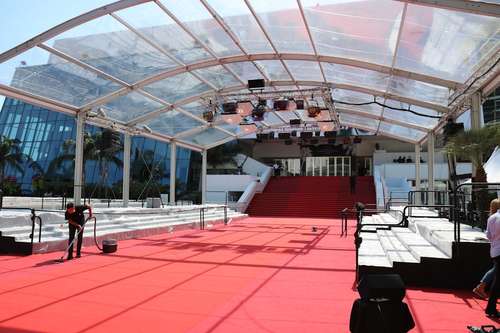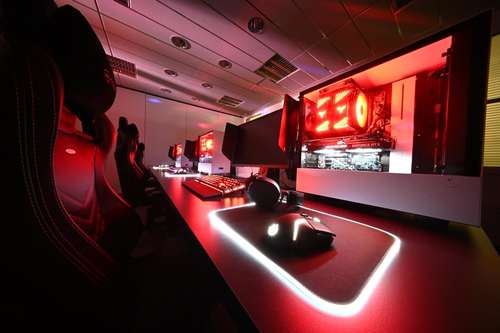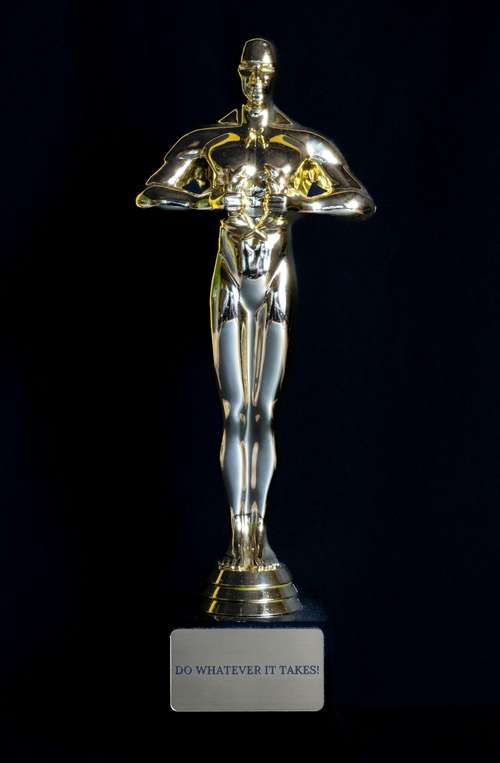Nintendo Games Excluded from E3 Speedrunning Event: A Closer Look at the Controversy
E3 has always been one of the most anticipated events in the gaming world, a time when gamers and developers come together in a celebration of innovation and entertainment. This year, however, the event has taken an unexpected twist, as Nintendo games have been excluded from the speedrunning showcase. This decision has sparked heated discussions among fans, developers, and the broader speedrunning community. Many are left wondering what led to this separation and what it means for the future of both Nintendo and the speedrunning event.
The exclusion of Nintendo games from the speedrunning event at E3 2023 has raised eyebrows across the gaming industry. Once a staple feature, Nintendo's absence is now a hot topic, stirring debates about policy, partnership, and the changing nature of gaming conventions. Could this be a sign of shifting strategies within E3, or does it point to deeper issues with Nintendo's approach to competitive gaming? The atmosphere is charged with anticipation and speculation.
The History of Nintendo and E3
Before diving into the specifics of the current event exclusion, let's take a quick look at the long-standing relationship between Nintendo and E3. Traditionally, Nintendo has been a major feature in various gaming showcases, including speedrunning events that highlight both casual and competitive gamers.
The history between the two is a rollercoaster ride of memorable moments, groundbreaking game releases, and iconic speedrun records. Over the years, Nintendo has captivated the speedrunning community with classics that continue to challenge even the most skilled players. For many, these historic runs are akin to university entrances – a rite of passage and a testament to passion and dedication.
While the competitive gaming scene and speedrunning communities have evolved significantly, Nintendo's influence and legacy remain undeniable. Aside from setting speedrunning benchmarks, the company has often inspired innovation in gameplay mechanics that continue to be celebrated. The shift in this year's lineup signals a stark departure and has left longtime fans feeling nostalgic and perplexed.
Impact on the Speedrunning Community
The decision to exclude Nintendo games from the E3 speedrunning event has had a profound impact on the speedrunning community. This section explores what this means for the players and fans who live and breathe speedrun tournaments, a segment of gaming that thrives on precision, passion, and tradition.
For many gamers, speedrunning is more than just a competitive challenge—it’s a way of life. It brings together individuals who relish perfecting their techniques, breaking records, and sharing insights about game mechanics. The event exclusion has stirred concern as Nintendo titles like Super Mario and The Legend of Zelda have historically been crowd-pleasers in these tournaments.
With Nintendo games no longer on the roster, a number of dedicated speedrunners are worried about missing out on the community's hallmark experiences. This development makes them question if smaller titles from other publishers might overshadow the legacy that Nintendo built over decades. One speedrunner mentioned to a close friend, 'This is like suddenly removing the foundation of classic racing tracks—I just can’t imagine a reliable substitute for it!'
The ripple effect is tangible: fewer entries in a beloved category, potential declines in viewership numbers, and less overall engagement from a segment that once felt seen and celebrated. The new format might be a blessing for emerging talents from other segments, or it might diminish the spirit that made speedrunning a family of interrelated passions.
Event Exclusion and Future Prospects
The mystery behind Nintendo's exclusion from the E3 speedrunning event boils down to ongoing discussions about policies and event formats. Here, we explore what could have led to this abrupt decision and what the future holds for both Nintendo and E3 in this domain.
Sources close to the event organizers suggest that this decision might be linked to a series of internal debates over how to integrate traditional speedrunning with competitive formats that attract new audiences. While none of the discussions have been publicly confirmed, it is clear that balancing the nostalgia for classic Nintendo games with the need to innovate is a formidable challenge.
Some speculate that Nintendo's stringent policies regarding game content and fan engagement played a significant role. Nintendo has always been known for carefully curating its brand image and protecting its intellectual property. Imagine a well-tended garden where every plant is meticulously managed; any unsolicited changes could disrupt the entire ecosystem. In this case, E3 might have decided that the risk of opposing views or even fan backlash could harm the intended experience of the event.
Looking ahead, there could be potential for reconciliation. Both parties may come together next year to create a more inclusive format that respects the traditions of the speedrunning community while upholding Nintendo's internal policies. It remains to be seen if there will be a collaborative effort, but industry insiders and fans alike are keeping a close watch on the negotiations.
Industry Reactions and Implications
Industry insiders and gaming enthusiasts have strong opinions about the exclusion, and their reactions add another layer to the unfolding story. The move is being framed by many as more than just a scheduling or policy decision—it is a statement about the future of competitive gaming and showcases like E3.
People in the gaming news community have been quick to voice their thoughts on social media and blogs. Casual gamers, more seasoned speedrunners, and even some developers have weighed in, each adding their perspective to the debate. The comment sections on various forums are buzzing with theories and expectations for upcoming collaborations or further exclusivity measures.
While some perceive the exclusion as a necessary step towards aligning with modern gaming trends, others see it as a move that risks alienating a core segment of the audience. It’s like trying to renovate a classic house: while improvements are welcome, removing the original architecture can unsettle those who value tradition. For many, this decision feels like an eruption in a landscape that has long been stable and predictable.
Any significant change in a revered event such as E3 prompts a wave of speculation about the broader impact on competitive gaming. Will future E3s continue this trend of selective participant showcases? And how will this shape the competitive gaming landscape as brands and communities adapt to new realities? The evolving scenario keeps everyone on the edge of their seats.
Looking Ahead
As we wrap up our discussion, it’s apparent that the exclusion of Nintendo games from the E3 speedrunning event serves as a microcosm of larger tensions in the gaming industry. The interplay between tradition and innovation, stringent brand policies and community expectations, paints a complex picture—one that continues to evolve.
While many are disappointed, there is also an air of anticipation. Will future events offer a compromise that satisfies old-school fans and new enthusiasts alike? Only time will tell, but what remains is a passionate community that believes in the power of competitive gaming to bring people together.
As fans, we can only hope that the dialogue continues and that future E3 events will once again embrace the speedrunning legacy, ensuring that no classic is left behind. The ultimate goal is progress without sacrificing the magic that made us fall in love with gaming in the first place.




